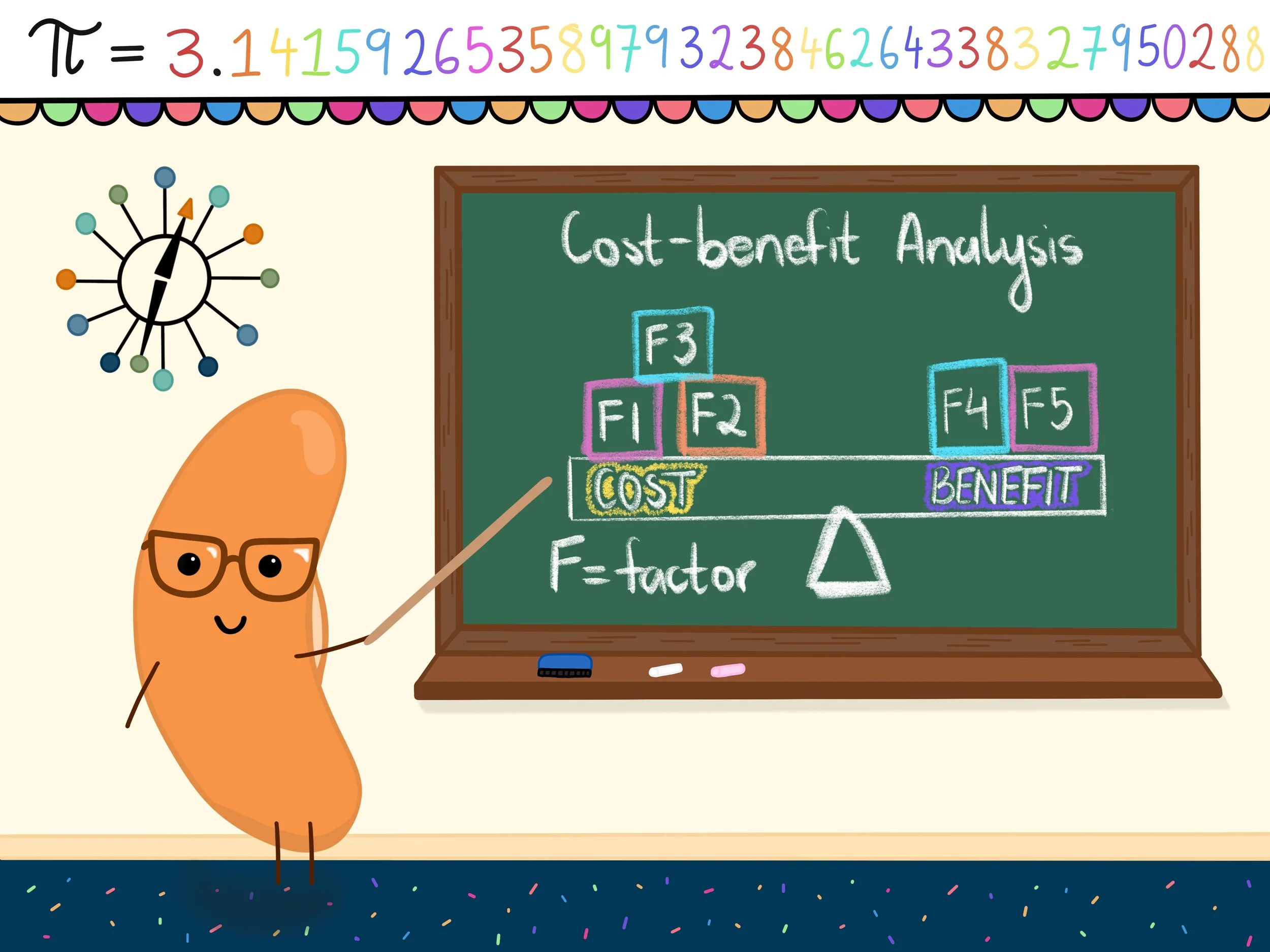Cost-Benefit Analysis — The Formula for Good Decision Making
What’s in it for you and is it worth it?
Often times when we make decisions, there are a lot of things that can cloud our better judgement. Your emotions, personal bias or the situation you’re in can cause you to make a decision that isn’t actually in your best interest.
Instead of realising you’ve made a bad decision after the fact, you can use a more objective process to determine if a decision is beneficial to you before deciding to go through with it.
What is a cost-benefit analysis?
A cost-benefit analysis (CBA) is a data-based method to evaluate the viability of a decision or project by assessing the costs against the benefits. This is commonly used in business or a work context, but it can similarly be applied to life decisions. The cost is what you give and the benefit is what you get. If what you’re giving is not worth what you get in return, then that opportunity or thing is not worth it for you. Put simply, a CBA = is it worth it?
Unlike in the case of a business, where factors contributing to the cost and benefit have a consistent weighting regardless of the business, a CBA can yield a different outcome for people as we consider factors in our decisions differently. Some people may not be willing to give X in exchange for Y, but for others this genuinely may be a valuable exchange. For example, let’s say you were offered a job in a field you really like, and everything about the job was to your liking, but it required you to work 80 hours a week. That would not be worthwhile to some people, while others would take that opportunity in a heartbeat. The benefits of a CBA over other decision-making tools, like a pros and cons list, are that it allows for the process to be personalised to gain better insight on if the exchange (cost versus benefit) is worth it to you particularly.
I caution you, however, to be honest with yourself when doing a CBA. Don’t try to trick yourself into thinking that you’re okay with giving certain things when deep-down you know you would be unhappy with the ROI.[1] If you are committed to being dishonest with yourself, no tool in the world will be able to help you. When all is said and done, you will be the one with the short end of the stick, but not unknowingly.
How to use cost-benefit analysis in your life
Some people focus solely on what they will get out of something without considering what they will have to give in return. That thing may not be beneficial when you realise the cost required for its benefit. If you find that a CBA reveals that something is not worthwhile to you, it doesn’t mean that the thing itself isn’t valuable to you, but the cost or benefit has to be different for it to be worth it.
Continuing with the job example from earlier, if the same job required you to work 60 hours instead of 80 hours, that would make that opportunity worthwhile to more people. If the job still demanded an 80 hour work week but paid more money than in the initial example, that would then make it worthwhile to other people. The result of a CBA is the balance between the cost and benefit. The same factors can be present on the cost or benefit side, but depending on the person, each factor will hold different weight in their decision. Ultimately, you need the scale to tip on the side of the benefit for something to be worth doing.
Using a CBA for life decisions can feel robotic or cold, seeing life in a transactional way. But what you give isn’t always what you get (Princess Tiana’s dad was misguided I’m afraid).[2] So you need to make sure that what you get is worth what you’re giving. This may feel uncomfortable at first and can elicit feelings of being a “bad person”. However, there is nothing “bad” about caring for yourself and considering your best interests. No one is your life, except for maybe your mother, will prioritise your interests over their own. The only people who do themselves a disservice are people who ignore the transactional reality of life. Never move forward with decision unless you’ve determined that the CBA works in your favour. Don’t be afraid to put yourself first!
Moving forward
I would encourage you to think of times in your life where you felt disappointed by what you had to give of yourself for something, leading to you feeling unfulfilled or even taken advantage of. How would a cost-benefit analysis have changed your decision?
You can’t go back in time and change decisions you’ve made, and you shouldn’t beat yourself up for this either. However, in the future, you can change this. Before you make a decision, ask yourself “what’s in it for me and is it worth it?”.
Footnotes
[1] Means return of investment. Usually used in a financial context. Here it takes the same meaning but investment is wider than just finances: how much have you gained or lost from your investment.
[2] From the movie The Princess and the Frog. In the song “When We’re Human”, Tiana sings the following lyrics:
What you give is what you get
My daddy said that
And I’ll never forget
And I commend it to you
I would not commend this way of thinking when it comes to decision-making as you don’t always get what you give. However, it does hold up generally for working hard for what you want and I love Tiana’s verse in this song for that.

